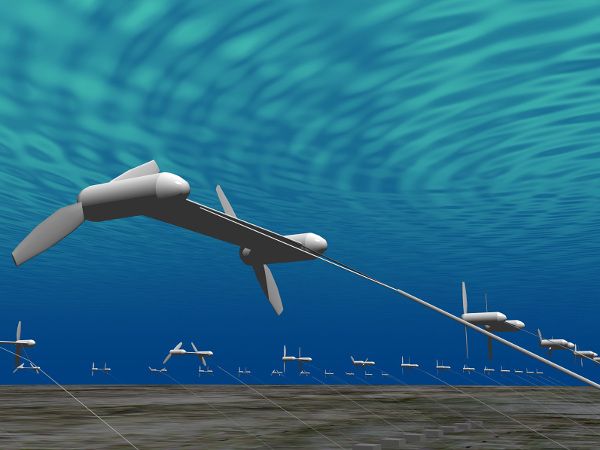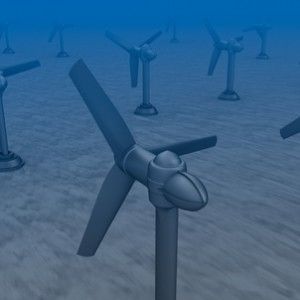Deep Sea Water Technology is Coming to Indonesia
Published on by Water Network Research, Official research team of The Water Network in Technology
Japan plans to develop a deep sea water project in Indonesia with a goal of producing renewable energy and electrify remote islands in the country.

Underwater floating type ocean current turbine system (Source: Toshiba)
Japan is reportedly eyeing to develop a deep sea water project in the Morotai Island with a goal of producing renewable energy and electrify remote islands in the country.
The island, according to Maritime and Fisheries Minister Susi Pudjiastuti, has been identified as one of the 12 integrated fishery centres (SKPT) in the country. The SKPT programme was launched by the ministry to attract investment and optimise the region's business potential, Antara News reported.
The programme has attracted interest from Japan, which has offered the deep sea water technology that "takes advantage of the temperature difference between the sun-warmed surface water and cold deep water to generate electricity."
Bramantyo Satyamurti Poewardi, director general of the ministry's sea management, said the cold deep water could also be used for tuna farming.
 "This technology will be in grant and not a loan. It's a G to G (government to government) project," he noted, according to SindoNews.
"This technology will be in grant and not a loan. It's a G to G (government to government) project," he noted, according to SindoNews.
Japan, which built its first research facility in 1989 at Cape Muroto in Kochi Prefecture, is considered by experts to be at the forefront of deep sea water research.
According to geopolitical intelligence firm Stratfor, Japan has already made steady progress in developing the technology needed to exploit unconventional deep-water materials, and it expects to begin trial operations in Japanese waters by the end of 2017.
In 2014, Toshiba and IHI partnered with Japan's New Energy and Industrial Technology Development Organisation (NEDO) to launch a research program that will investigate underwater current power by floating kite turbines.
"The unique 'underwater floating type ocean current turbine system' will demonstrate power generation in a real ocean environment, in a project expected to continue until 2017," Toshiba said in a statement. "The research work is expected to prove the viability of ocean energy power generation and to create the framework for an industry, and also to contribute to improved energy security for Japan."
Source: EET Asia
Media
Taxonomy
- Technology
- Energy
- Turbine
- Oceanographic Survey
- Hydro Power
- Renewable Energy
- Power Management